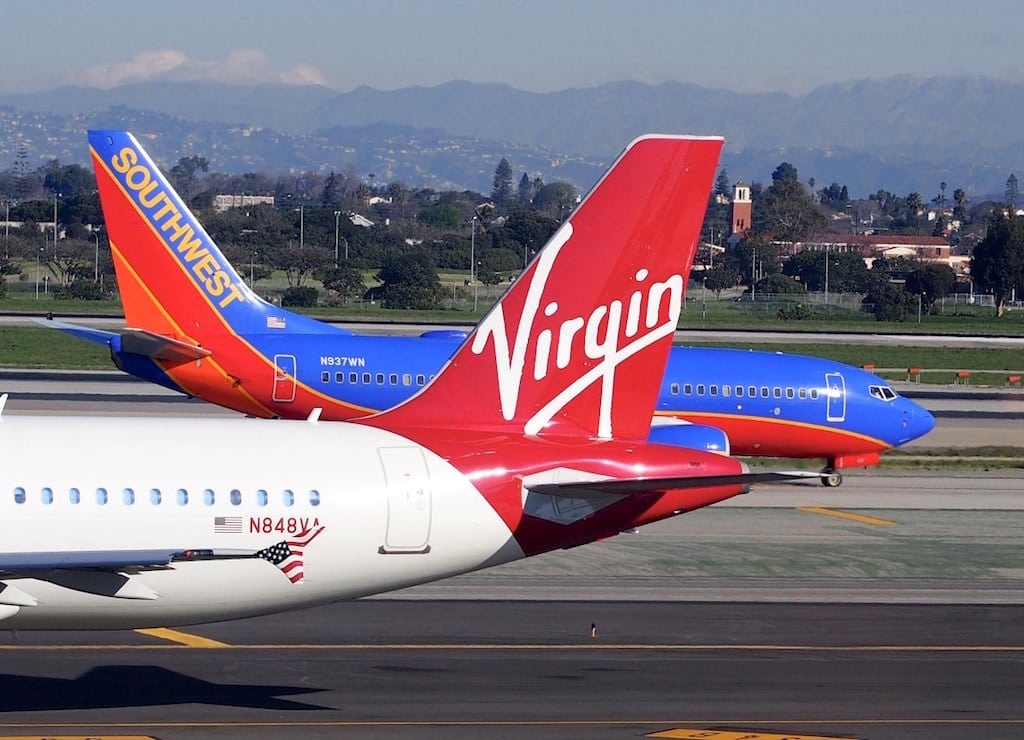Skift Take
The reality is that carriers like Virgin America are going to have cut prices even lower to compete with ultra low-cost carriers. Like it or not, "garbage fares" are here to stay.
Virgin America’s focus on perks like in-flight video streaming from Netflix have helped its visibility in the U.S. air market, but it faces stern competition from the expanding ranks of low-cost carriers fighting for bookings from cost-conscious consumers.
On the company’s most recent earnings call Virgin America president and CEO David Cush said the company will try to avoid undercutting the competition to keep its flights full.
One analyst on the call said he had recently flown on Virgin America for $30, leading Cush to say that Virgin America doesn’t have a policy of matching “garbage fares” from other airlines.
“In general we would like to avoid matching [ultra low-cost carrier] pricing,” said Cush. “That is… our strategy going forward, but you can’t always do that, especially in a softer period. If you go through the publicly available data, what you see is that our average ticket value tends to be higher than the marketplace.”
Overall, the airline posted decreased revenue per seat and but reported strong earnings in the third quarter due to reduced fuel costs and the highest quarterly margins the company has ever reported.
Despite his insistence that price matching isn’t a huge concern, Cush said the reality of the competitive airline pricing ecosystem means bargain basement fares will remain a reality.
“If you’re running 95 percent load factors, that probably means half of your flights are going out at 100 percent full or over sold,” he said. “What you see with us is a more aggressive approach towards yield management, but every once in a while you’re going to find one of these ultra low-cost carrier matches that creeps through the system.”
Also of note during the call was a comment by Cush to the effect that the focus on ancillaries by United and Delta has lead to consumers expecting unbundling whenever they fly.
Virgin America’s business flyers, which account for about 20 percent of the company’s passengers, are spending much more on ancillaries than leisure flyers, probably because they’re passing the extra costs to their companies.
“There is certainly going to be a continued push toward unbundling and rebundling,” said Cush. “The fact that the two largest carriers in the world are very focused on this is going to drag the rest of the market in that direction, too.”
The Daily Newsletter
Our daily coverage of the global travel industry. Written by editors and analysts from across Skift’s brands.
Have a confidential tip for Skift? Get in touch
Tags: earnings, virgin america
Photo credit: Virgin America and Southwest Airlines planes taxiing in Los Angeles. Paris Buttfield-Addison / Flickr
